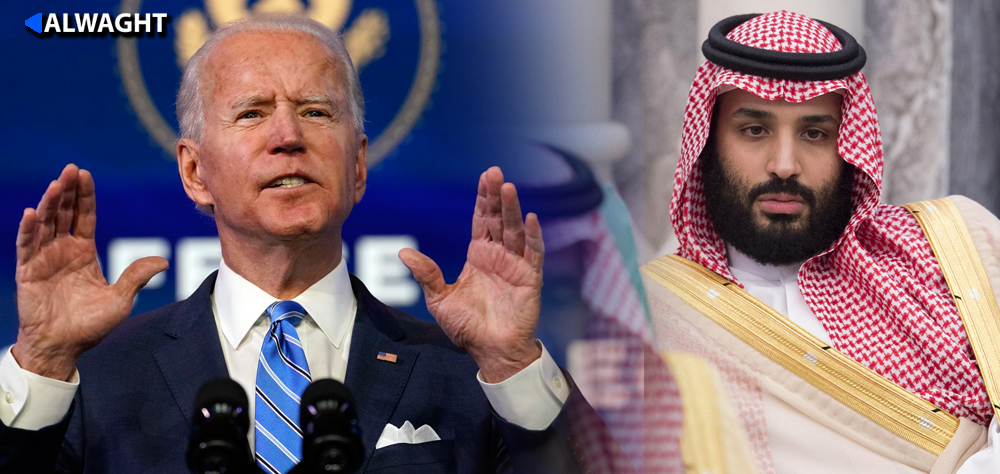Alwaght- With Trump’s departure, the eyes are now on Riyadh and the orientation of its regional policy in the atmosphere of expected changes and developments in the relationship with the US. Although the Saudi Foreign Minister Faisal bin Farhan sounded upbeat in an interview with the Saudi-owned Al-Arabiya news network on Thursday about the relations with Washington under new President Joe Biden, however concerns of the Saudi leaders, especially the Crown Prince Mohammed bin Salman, about the rise of critics of the Trump’s blank check for Riyadh rulers is quite noticeable, to an extent that the reconciliation with Qatar is called as a significant aftermath of the shattering of bin Salman dreams with the victory of Biden.
This gives rise to a question: What changes are expected in the Saudi foreign policy especially in the regional policy in the new era?
Although Saudi Arabia ostensibly ended years-long crisis with Qatar, and gave Turkey the green light to begin de-escalation, and expectations were raised that Riyadh may continue such an approach in other crisis-ridden regional cases— in a way that Qatar announced its readiness to mediate in Tehran-Riyadh relations—, the Saudi foreign minister's remarks on Thursday made it clear that the country's leaders are still taken aback by US election results and are waiting for the new administration foreign policy team’s policies to be announced in the middle of absence of a proper strategy.
This was quite evident in the Saudi FM’s remarks on his country’s policy towards the Yemeni war, dialogue with Iran, normalization of relations with the Israeli regime, and his emphasis on continuing geopolitical rivalry with Ankara despite the recent de-escalation efforts made by President Recept Tayyip Erdogan of Turkey.
Regarding Yemen war, Riyadh has not been serious to negotiate with Sana’a to end the war and the five-year siege and massacring of civilians, despite its full despair about advances in military campaign and even despite the change of equations and the creation of a balance of terror by Ansarullah. At the same time, the Saudis indirectly complain about the new administration’s decision to review blacklisting Ansarullah resistant movement as an international terrorist organization by the Trump administration on January 11.
This strategic confusion cab even become more apparent with an awareness of two issues: First, the role of the anti-Yemeni aggression in creating the great economic crisis of recent years for Riyadh— which led to Bin Salman taking an unprecedented move to sell part of the monarchy’s oil giant Aramco’s shares along with tax hikes and also crack down on some wealthy royals that culminated in confiscation of their assets and cash. Second, protests against Yemen war among American politicians because of declining US dependence on West Asia region’s energy and the diminishing importance of the Persian Gulf in the White House foreign policy strategy, which means fall in the political and military support for the war.
Both of these issues mark a need for the Saudis to change their belligerent policies in Yemen, but their insistence on unrealistic views of the past and failed plans to continue war against the Yemeni people— like the now-invalid "Riyadh Agreement" between the resigned Yemeni President Abd Rabbuh Mansour Hadi and UAE-sponsored southern separatists— demonstrate that their foreign policy is caught in a lack of dynamism to adapt to the new Yemeni conditions.
This Saudi perplexity can be seen in another way in relation to the Qatari proposal for negotiations with Tehran. On the one hand, the Saudi FM speaks of pro-negotiation approach of his country’s foreign policy in reference to Iran's readiness for dialogue, but on the other hand continues to block the negotiation way by making repeated and threadbare anti-Iranian accusations.
In this case, too, receiving influence from the US election is evident. In fact, Saudi Arabia had put all of its eggs— about the way of countering Iran in the disputed cases— in the basket of expectation of the success of Trump's policy of maximum pressure against Iran, hoping that Tehran under strains would walk back from its missile program and modify its regional policies.
In this regard, on Thursday Iran’s Foreign Minister Mohammad Javad Zarif said that the reason behind frustration of the late Kuwaiti Emir Sheikh Sabah Al-Ahmad Al-Baber Al-Sabah’s initiative for dialogue between Iran and its Persian Gulf neighbors was the assumption of office at the White House by Trump and the Saudi optimism about success of his largely escalatory and unruly actions against the Islamic Republic.
But not only has Trump's policy of maximum pressure badly failed but also with his departure and the boost of the Iran-headed Axis of Resistance, the Arab kingdom’s concerns have increased dramatically, making Riyadh desperately push for involvement in any new deal with Iran as it knows that the 2015 nuclear deal declined to contain Tehran.



























